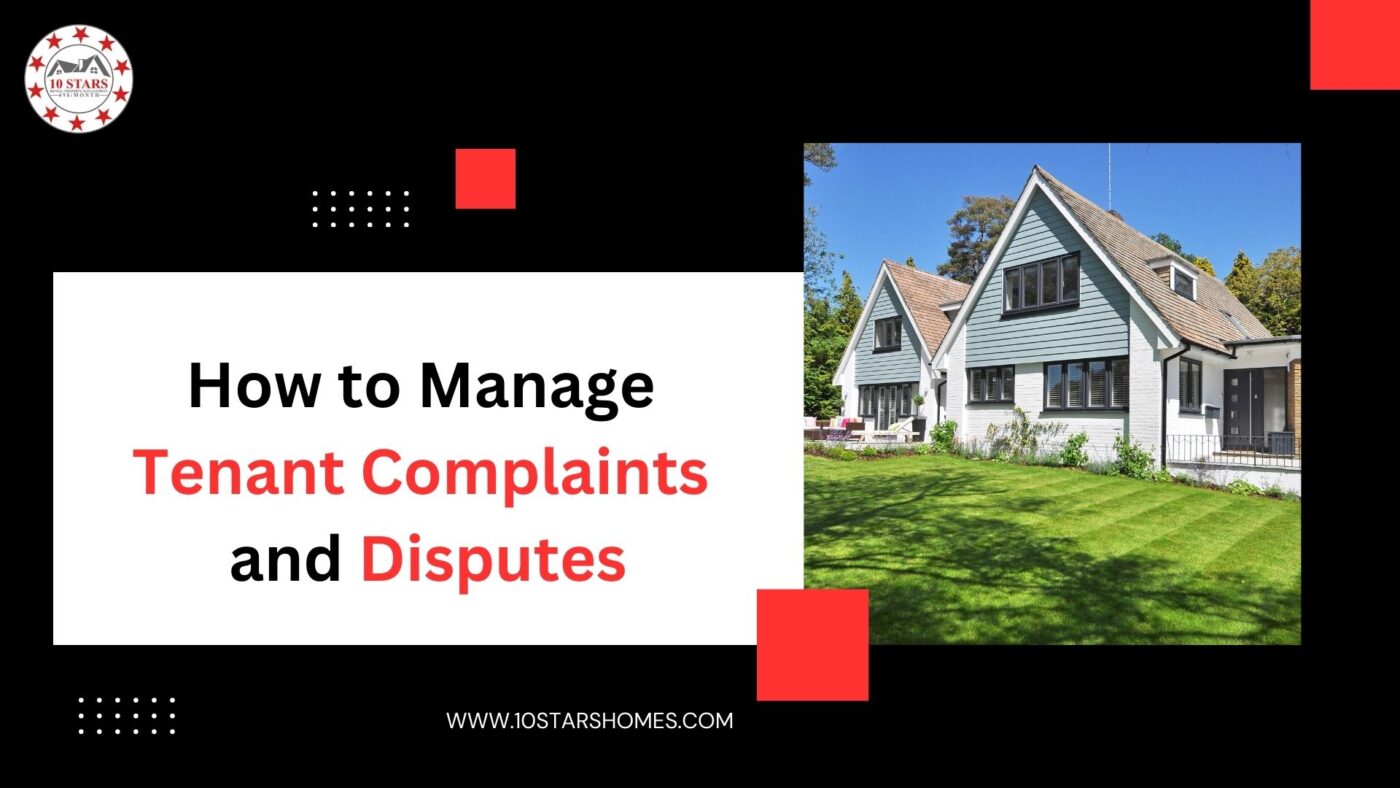Being a landowner or property supervisor can be a satisfying undertaking, yet it’s not without its difficulties. Quite possibly the most well-known challenge that emerges in the domain of property, is the executives managing occupant protests and debates. Whether it’s an upkeep issue, a conflict over rent terms, or commotion grumblings, tending to these worries really is critical for keeping a positive property manager-occupant relationship and guaranteeing an agreeable living climate. In this blog entry, we will investigate important methodologies and best practices to help landowners and property administrators successfully oversee occupant grumblings and questions.
Foster Open Communication
Clear and open correspondence is the groundwork of any fruitful relationship, and the landowner-occupant relationship is no special case. Urge your inhabitants to communicate their interests immediately and give numerous channels for correspondence, like email, telephone, or an internet-based entrance. Respond to complaints in a timely and empathetic manner, demonstrating your commitment to resolving the issue.
Act Promptly
Address tenant complaints and disputes as soon as possible. Ignoring or delaying action can escalate minor issues into significant problems, leading to strained relationships and potential legal consequences. Prioritize urgent matters and establish clear timelines for resolving non-urgent concerns. Proactive and timely action demonstrates your dedication to tenant satisfaction and promotes trust.
Document Everything
Maintain thorough documentation of all tenant complaints and disputes, including the details of each complaint, the actions taken to address them, and any resolutions reached. This documentation can serve as evidence in case of legal disputes and helps track recurring issues or problematic tenants. Organize and store the documentation securely to ensure easy access when needed.
Mediation and Conflict Resolution
Some tenant disputes may require mediation or conflict resolution to reach a fair and satisfactory resolution. In such cases, consider engaging a professional mediator or a neutral third party to facilitate communication between both parties. Mediation can help reduce tension, find common ground, and reach mutually beneficial agreements. It’s essential to approach conflicts with empathy, active listening, and a willingness to find creative solutions.
Know the Laws and Regulations
Really get to know the neighborhood and state regulations and guidelines in regard to occupant landowner connections. This information will assist you with figuring out the freedoms as well as certain limitations of the two players and guarantee consistency. Being aware of the legal framework can help prevent disputes and guide you in resolving issues effectively and lawfully.
Maintain Property Upkeep
Many tenant complaints stem from maintenance issues or neglected property conditions. Regularly inspect and maintain the rental property, addressing any necessary repairs promptly. A well-maintained property not only keeps tenants happy but also minimizes the chances of disputes arising from neglect or unsafe living conditions.
Implement a Fair and Transparent Dispute Resolution Process
Establish a clear and transparent dispute resolution process that outlines the steps involved in addressing tenant complaints. Communicate this process to your tenants, ensuring they understand how to escalate concerns and what to expect during the resolution process. A fair and transparent process fosters trust and provides a framework for addressing disputes in an orderly manner.
Conclusion
Effectively managing tenant complaints and disputes is an essential aspect of successful property management. By fostering open communication, acting promptly, documenting everything, employing mediation and conflict resolution techniques, being knowledgeable about relevant laws, maintaining property upkeep, and implementing a fair dispute resolution process, landlords and property managers can navigate tenant complaints and disputes with confidence. By doing so, they can foster positive relationships with tenants, ensure tenant satisfaction, and maintain the overall harmony and success of their rental properties. Remember, proactive management and timely resolution of tenant concerns contribute to a positive rental experience for everyone involved.

